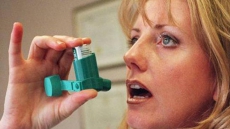Love watching horror movies? Well, the fear or horror can curdle your blood for real, preparing the body for blood loss during life-threatening situations.
The results suggest that using the term “bloodcurdling” to describe feeling extreme fear while watching horror films is justified, say researchers, adding that scary movies result in an increase in the clotting protein - blood coagulant factor VIII.
To understand this further, researchers in The Netherlands set out to assess whether acute fear can curdle blood.
The study involved 24 healthy volunteers aged 30 years or younger recruited from Leiden University Medical Centre.
Fourteen were assigned to watch a frightening (horror) movie followed by a non-threatening (educational) movie) and 10 to watch the movies in reverse order.
Before and after each movie (within 15 minutes), blood samples were taken and analysed for markers or “fear factors” of clotting activity.
The horror movie was perceived to be more frightening than the educational movie, with a 5.4 mean difference in fear rating scores.
The difference in coagulant factor VIII levels before and after watching the movies was higher for the horror movie than for the educational movie.
"Levels increased in 12 (57 percent) participants during the horror movie, but only in three (14 percent) during the educational movie,” the authors noted.
Levels decreased in 18 (86 percent) participants during the educational movie, but only in nine (43 percent) during the horror movie.
However, the researchers found no effect of either movie on levels of other clot-forming proteins, suggesting that although coagulation is triggered by acute fear, this does not lead to actual clot formation.
The term “bloodcurdling” dates back to medieval times and is based on the concept that fear or horror would “run the blood cold” or “curdle” (congeal) blood.
"Watching bloodcurdling movies is associated with an increase in blood coagulant factor VIII without actual thrombin formation,” the authors concluded in the journal The BMJ.





